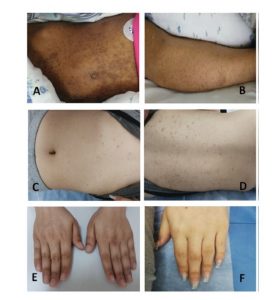Question of the Day – Thursday January 23, 2020
What is the proposed benefit of treating Cannabinoid Hyperemesis Syndrome (CHS) with Droperidol over other antiemetics?
Question of the Day – Wednesday January 22, 2020
This rodenticide causes beta islet cell destruction?
Question of the Day – Tuesday January 21, 2020
What is the proposed duration of observation for lactic acidosis following acute overdose of metformin?
Question of the Day – Monday January 20, 2020
What is the proposed culprit to these findings?
What is the proposed culprit?
Question of the Day – Friday January 17, 2020
This skeletal muscle relaxant has been implicated in causing serotonin toxicity in overdose?
Question of the Day – Thursday January 16, 2020
This antidote has been used in treating ifosfamide induced encephalopathy?
Latest ABAT Newsletter
2019 Winter Summer Spring v.2 Spring 2018 Winter Fall Spring 2017 Fall Spring 2016 Winter Spring 2015 Winter Spring Summer 2014 Spring Fall
Question of the Day – Wednesday January 15, 2020
Type- 2 amiodarone induced thyrotoxicosis is usually treated with this?
Question of the Day – Tuesday January 14, 2020
Bexarotene (Targetrin) is a third generation retinoid indicated for the treatment of cutaneous T cell lymphoma. This side effect occurs in 40-70% of patients treated with this drug?
Question of the Day – Monday January 13, 2020
An elevated trough concentration of cefepime results in this adverse effect?
An elevated trough concentration of cefepime results in this adverse effect?
